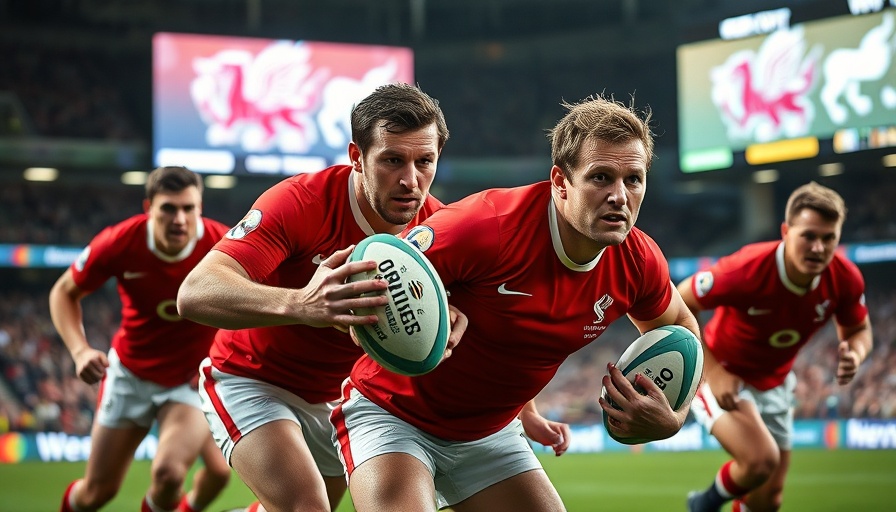
Josh Adams Set to Miss Key Clash Against Scotland
In a significant blow to Wales' hopes in the Six Nations, star wing Josh Adams will sit out the crucial match against Scotland due to a lingering hamstring injury. The 29-year-old, known for his speed and scoring prowess with 21 tries in 61 appearances for his country, had already missed Wales' previous match against Ireland, where they succumbed 27-18, extending their heartbreaking losing streak to 15 matches.
This latest setback highlights the ongoing challenges facing the Welsh squad as they strive to break free from their current malaise. Interim head coach Matt Sherratt, who stepped in after Warren Gatland's departure, now finds himself without one of his leading players as his team prepares to face a formidable Scottish side in Edinburgh.
Wales' Struggle and the Importance of Depth
The absence of Adams presents a serious dilemma for Sherratt, especially after the national team's lacklustre performances in the tournament thus far. Wales has not only struggled with their results but also with injuries affecting key players like Adams, who was expected to be instrumental in their recovery. However, Sherratt will lean on the talents of his remaining squad, who have demonstrated resilience in the face of adversity.
In better news for the team, flyhalf Gareth Anscombe has recovered from a head injury and is expected to play. His leadership will be crucial as Wales grapples with its identity and strives for a competitive edge against an impressive Scottish unit that has shown significant growth in recent years.
The Road Ahead: Expectations and Pressures
With both teams entering the match with their own pressures—Wales looking to end their dreadful run, and Scotland hoping to capitalize on their form—this encounter promises to be anything but predictable. As the tournament progresses, all eyes will be on how the Welsh can adapt in Adams' absence and whether they can harness the urgency of their situation into a positive outcome.
Rejuvenating the Squad: New Faces Amidst Familiar Challenges
Wales' preparation for the Scotland clash sees the return of Dewi Lake, the former captain who missed the first part of the Six Nations due to injury. Jones has expressed optimism about Lake's integral role, indicating that the returning players will bring not just experience but also the youthful fervor necessary for a turnaround.
Final Thoughts: A Defining Moment for Wales Rugby
Wales’ engagement in this tournament is more than about standings; it’s about restoring pride and vision within the team. The question remains: can they conquer the issues plaguing them and rise to the occasion against Scotland? Fans remain hopeful that despite obstacles, determination and a fighting spirit will shine through as they look for the much-needed victory on the field.
As the Six Nations continue, it’s vital for supporters, particularly young athletes looking to emulate their heroes, to stay engaged with the journey of Welsh rugby. Follow the developments closely—you never know which match may be pivotal in shaping the future of this historic side!
 Add Row
Add Row  Add
Add 




Write A Comment